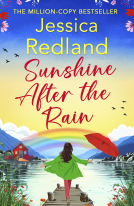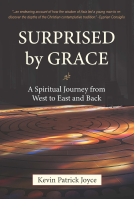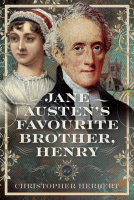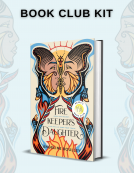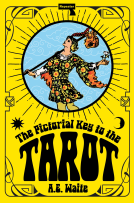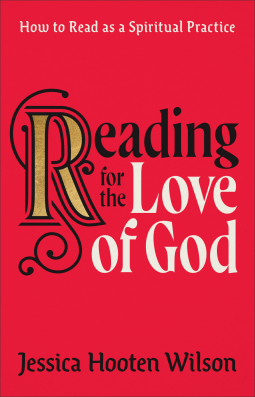
Reading for the Love of God
How to Read as a Spiritual Practice
by Jessica Hooten Wilson
This title was previously available on NetGalley and is now archived.
Send NetGalley books directly to your Kindle or Kindle app
1
To read on a Kindle or Kindle app, please add kindle@netgalley.com as an approved email address to receive files in your Amazon account. Click here for step-by-step instructions.
2
Also find your Kindle email address within your Amazon account, and enter it here.
Pub Date 28 Mar 2023 | Archive Date 29 May 2023
Baker Academic & Brazos Press | Brazos Press
Talking about this book? Use #ReadingfortheLoveofGod #NetGalley. More hashtag tips!
Description
What if we viewed reading as not just a personal hobby or a pleasurable indulgence but a spiritual practice that deepens our faith?
In Reading for the Love of God, award-winning author Jessica Hooten Wilson does just that--and then shows readers how to reap the spiritual benefits of reading. She argues that the simple act of reading can help us learn to pray well, love our neighbor, be contemplative, practice humility, and disentangle ourselves from contemporary idols.
Accessible and engaging, this guide outlines several ways Christian thinkers--including Augustine, Julian of Norwich, Frederick Douglass, and Dorothy L. Sayers--approached the act of reading. It also includes useful special features such as suggested reading lists, guided practices to approaching texts, and tips for meditating on specific texts or Bible passages. By learning to read for the love of God, readers will discover not only a renewed love of reading but also a new, vital spiritual practice to deepen their walk with God.
Advance Praise
“In her deft and beautiful way, Jessica Hooten Wilson crafts a theology of reading for Christians who have forgotten why it matters. She challenges us to take up and read—not only because it teaches about the faith of our past but because it makes our faith stronger for the present too. Get this book to learn, to grow, and to be inspired.”—Beth Allison Barr, James Vardaman Professor of History, Baylor University; bestselling author of The Making of Biblical Womanhood
“In Reading for the Love of God, Jessica Hooten Wilson makes the case for reading as a means of transformation into Christlikeness. Her own meditations on the theology, spirituality, and ethics of reading are punctuated with studies of great Christian readers, male and female, down through the ages, which adds a rich layer of historical insight to her own brilliant reflections. We live in an age of shallowness, and reading is perhaps its greatest casualty. But Hooten Wilson issues a clarion call to rediscover depth. This book is profound and practical at once. As St. Augustine would say, tolle lege (take and read)!”—Tish Harrison Warren, Anglican priest and author of Liturgy of the Ordinary and Prayer in the Night
“To read Jessica Hooten Wilson’s Reading for the Love of God is to enter into a sacred apprenticeship with the faithful believers and minds of the church that have gone before us, learning at their feet with Hooten Wilson as our wise and faithful guide. To read this book is to truly learn how to read spiritually—and readers who approach this book humbly will not walk away unchanged. Reading for the Love of God is a tremendous gift, one that will shape, reform, and revitalize the way the church reads. By helping us read for the love of God, Hooten Wilson helps us live for the love of God. I’ll be recommending this book widely in my parish and beyond for years to come.”—Claude Atcho, pastor of Church of the Resurrection, Charlottesville, Virginia; author of Reading Black Books
“Jessica has the remarkable gift of making intimidating subjects accessible. Reading is one of those for many folks, and yet what a gift they’re leaving unwrapped if they keep the act of reading in the basement of ‘things done in high school’ or in the hallowed halls for only the enlightened. This helpful, encouraging guide is both for those who already know they love to read and for those who want to be someone who reads. We all benefit from Jessica’s winsome words on these pages, words that inspire us to pull more books off the shelf and ask, ‘How might this next one change my life?’”—Tsh Oxenreider, author of Bitter and Sweet, Shadow and Light, and At Home in the World
“We are what we read. Yet, it is not only what we read but also how we read and to what ends. Jessica Hooten Wilson wonderfully demonstrates that reading is not only an art but also, most importantly, a transcendent calling, mission, and vocation.”—Gloria Purvis, host and executive producer of The Gloria Purvis Podcast
Available Editions
| EDITION | Other Format |
| ISBN | 9781587435256 |
| PRICE | US$24.99 (USD) |
| PAGES | 208 |
Available on NetGalley
Featured Reviews
Short but very interesting argument for the value of reading fiction for spiritual edification. Well developed and well-written. It helps you label your reading style and provides examples for cultivating a reading life that builds up your heart mind and soul.
 Conrade Y, Reviewer
Conrade Y, Reviewer
Why do we read? Some read for mere information. Others read for leisure. A few might read for spiritual formation. The latter reason is what this book is about. Spirituality, spiritual disciplines, or spiritual practice all come under spiritual formation. A key question that asks of us is this: Are we reading for the purpose of utility or for enjoyment? With this theme, author Jessica Hooten Wilson takes us through several different ways in which people read before showing us the way forward to better reading. By comparing and contrasting the various forms of readings, she helps us deal with the whys of reading rather than settling merely for the whats. This calls for some paradigm changes in the way we read. Gradually, she turns our attention toward the art of reading well. There are lots of gems in this book that merit not just reading this book, but also reading in general. First, we learn about ourselves and our reading attitude. She invites us to question ourselves on what kind of reader we are, pointing out the many varied reasons people read in the first place. Her hope is that once we recognize what kind of readers we are, we can then see the difference between where we are and Wilson's proposal about where we ought to go. One key feature is the distinction between "critic" and "reader." The former binds one to conquer, master, or manipulate the text for self-purposes while the latter keeps one open for learning and understanding. One uses the text while the other learns from the text. Such a problem has become bigger since the advent of the Internet and digital screens. Second, the debunking of reading "only the Bible argument." She tackles the common questions asked by certain fundamentalists who claim that we should not read any other stuff apart from the Bible. As she points out the differences between the Bible and other literature, she guides us that the key difference is that of authority in the order of Sacred Text (Bible), Trustworthy Authors, and followed by the rest. For believers, this is an important question that Wilson deals with eloquently to argue that any Christian should recognize that God speaks not only through the written Word but also through the language of Truth. Third, Wilson hones in on the difference between enjoying and using, something that should make us pause to reflect on our reading habits. Reading for pleasure and enjoyment is more than simply gaining facts or information. Just as beauty prompts us to behold rather than analyze, reading for love and enjoyment turns us toward love and to God. Fourth, Wilson asks the question "Do good books make a person good?" In short, not necessary, but it provides the fodder to grow in that direction. Fifth, Wilson draws our attention to the Reading Trinity: Author, Reader, Text (the ART). She describes these three ways of reading before making a case for a discerning use of all. Sixth, she introduces to us another reading paradigm via the four senses of reading, more specifically, how the early church reads the biblical text: "Literal, Figurative, Moral, and Anagogical" before showing us the four spiritual ways of reading, as advocated by the 12th Century spiritual master, Guigo II: Lectio, Meditatio, Oratio, and Contemplatio. Finally, reading aids memory, and in turn helps a culture to flourish. Going back to the Old Testament, she reminds us that memory-keeping is a moral responsibility. Lest we forget, we risk repeating old mistakes. Against the over-reliance on our digital devices, she lists for us the various ways in which we can exercise our memory: Liturgy, copying, reciting, illustrating, mapping, repeating, and so on.
My Thoughts
==============
This is one of the best books I have read about learning to read. Those of us who have read Mortimer Adler's classic work, "How to Read a Book" would recall the four different levels of reading. Each level represents a more advanced kind of reading or intelligent reading. Wilson's contribution is not to supplant but to supplement this book with an emphasis on reading spiritually. While Adler's work is a non-Christian perspective of the world of reading, Wilson's book approaches from a Christian perspective about reading books of both spiritual and secular origins. Non-Christians can also benefit because Wilson takes special care to point out that as far as Truth is concerned, there is no dichotomy between Christian versus non-Christian books. She not only draws material from popular Christian authors like Augustine, St Teresa of Avila, Søren Kierkegaard, Flannery O'Connor, G.K. Chesterton, CS Lewis, Eugene Peterson, etc; she encourages us to read Albert Camus, Confucius, Frederich Nietzsche, George Orwell, Jean-Paul Sartre, Lao Tzu, Plato, etc. Her recommended list is a great resource to begin practicing our reading abilities. It comprises both children's and classic works; fiction and non-fiction; poetry and prose; novels and short stories, spiritual and others, etc. Why do I recommend this book? Let me offer three quick reasons.
First, we need to bring back the love for reading good books. Today, more people are reading stuff off the Internet. They mine websites for information. They comb social media for updates. They search for news to read. It is increasingly our way of seeing the world through the tiny screens of our phones, tablets, and conventional computers. Some even claim that they are always reading books, such as FaceBook! It has been reported that people trying to read off the Internet or eBooks, tend to browse rather than read. Eyeballs on digital screens tend to skim words on the page instead of actually reading from top to bottom. Statistically, people read more on the top half of the screen instead of the bottom half. She calls for us to turn away from the "seduction of screens" toward the "love of the book," in particular, the love of God that drives our reading. This brings us to the second reason why this book is highly recommended: It motivates one to read widely. By addressing concerns about whether to read Christian books vs non-Christian books, secular or spiritual, Wilson peels away the superficial labels to help us prioritize Truth over simplistic labels. Such labels include the tendency to avoid certain authors on the basis of their beliefs or prejudices. In a society that is increasingly intolerant of any kind of perceived discrimination, people are practicing a new form of "book-burning" by ostracizing books written by authors accused of blatantly unacceptable practices like gender inequality, racial prejudice, white supremacy, etc. Increasingly, mainstream views are painting alternative views as pariahs to be banned. For instance, people and book distributors supporting the LGBTQ rainbow movement are starting to marginalize books from authors who disagree or dissent from the mainstream. (See J.K Rowling.) This is where Wilson's trinity of reading is helpful. Do not let the "Reader-Response" emotion overwhelm the other two branches of authorial intent of the book, and the text itself. Hopefully, this book can calm down passionate advocates from all sides to learn to view books based on their merit rather than label-tainted colours.
Finally, Wilson does not just tell us what to read, she shows us how to read. Using examples from the lives of Augustine, Julian of Norwich, Frederick Douglass, Dorothy Sayers, and many more, readers learn to connect the text with the author. In doing so, she subtly shows us how to bring in the third party: Us. Good reading means we learn to read well and enjoy the reading process. We learn not just the mere mechanics of reading but also the motivation for reading. We let the love of God help us to read not just the Bible, but other good books. We can play our part by pushing back against the superficial reading and browsing that many people do nowadays. We learn not to read in order to control or criticize but to adopt a stance of humility and willingness to learn. Many people are satisfied with mere summaries of a book or article. When they do that, they reduce the beauty of a book to pointers and memorable quips. We need to shun such attitudes to move away from information-seeking toward using reading to help us be better readers and better people. In an Internet world, information reigns supreme. We need something better, like spiritual discernment, wise selection, Spiritual formation into Christlikeness, and so on. This book shows us the way.
Jessica Hooten Wilson (PhD, Baylor University) is the inaugural Visiting Scholar of Liberal Arts at Pepperdine University in Malibu, California. She previously taught at the University of Dallas. She is the author of The Scandal of Holiness, Giving the Devil His Due: Demonic Authority in the Fiction of Flannery O'Connor and Fyodor Dostoevsky (winner of a 2018 Christianity Today Book of the Year Award), and two books on Walker Percy. She is also the coeditor of Learning the Good Life and Solzhenitsyn and American Culture. Wilson speaks around the world on topics as varied as Russian novelists, Catholic thinkers, and Christian ways of reading.
Rating: 5 stars of 5.
conrade
This book has been provided courtesy of Brazos Press and NetGalley without requiring a positive review. All opinions offered above are mine unless otherwise stated or implied.
Mrs. Hooten Wilson is a phenomenal writer. “Reading for the Love of God” really lays out how to be an effective reader and how reading should be a spiritual practice. It really makes you rethink how you read and why. The references to different authors and articles are also helpful in getting insights in reviewing your habits.
 Reviewer 1112521
Reviewer 1112521
I have been particularly loving reading about reading lately (as I’m sure my latest reads on Goodreads indicate) so “Reading for the Love of God” was a logical choice as well as a pleasurable one!
I have always found myself attracted more to fiction than nonfiction and Hooten Wilson does a remarkable job advocating for Christians to read widely and look for our Creator wherever we do read.
The entire body of the book is excellent but my favorite part was the appendices! The author gives an example of how to read in the way she advocates for, answers some frequently asked questions and finally provides reading lists (!!!!). I am particularly excited to dove into her recommendations for young readers with my oldest daughter.
Thanks to NetGalley for an advance reader copy of the book for my honest review.
As a book lover who is also Christian, this book was lovely and spoke to the heart of what I believe about God, the world, literature, and understanding the Bible. As a literature professor at a Christian college, this book is the breath of fresh air my 200 level survey classes have needed. This book explains why we should read things we don’t agree with or that may rub us the wrong way. It explains the necessity of reading to knowledge and understanding and how literature opens the door to better understanding the Bible. If you are a lover or teacher of literature and a believer, I highly recommend this book.
I so appreciate this read, on so many levels!
Being an avid reader myself (hence why I have a book-review blog ... :D), I was naturally drawn to the book's topic. I actually chuckled a bit while reading, because I started college with every intention of majoring in English--and switched majors two quarters in because "who wants to analyze books? Not me!" And now, a number of years later (we won't talk about how many) ... I've finally gotten drawn in to literary criticism and similar. And this book is an excellent addition to both that genre and the topic of reading as a spiritual practice. It certainly lives up to its subtitle!
I also love that Wilson writes on marking up books. I do this all the time, and this book helped me articulate why. Harking back to monks of old who paid attention to the written word and natural beauty, Wilson waxes eloquent on the conversation between books and readers captured in handwritten commentary.
Wilson also encouraged me in this book to examine my motives in reading (a powerful tool, and frankly freeing; far too often, I read/suffer through a book because I feel like I "should," for one reason or another). Her discussion on use versus enjoyment, in particular, was fascinating and eye-opening.
A recommended read, especially for those who enjoyed C.S. Lewis's On Writing (and Writers): A Miscellany of Advice and Opinions or Andrew Klavan's The Truth and Beauty: How the Lives and Works of England's Greatest Poets Point the Way to a Deeper Understanding of the Words of Jesus.
I received an eARC of the book from the publisher via NetGalley. All opinions are my own.
Reading for the Love of God sounded very appealing but as I read it, I was reminded that though I’ve read my share of classic literature in the past, that is not the type of reader that I am today. This book will be thoroughly enjoyed by those who are serious readers and thinkers. One of the points of advice that the author gives is to consider CS Lewis' guide to read three old books for ever new one and in addition at least three literary books for every nonliterary choice. She did have some points that I enjoyed thinking about like a model where a book consists of three elements, the Author, Reader, and Text (ART) or the role of a translator in creating the novel in another language. Thank you to Baker Academic & Brazos Press and Net Galley for my copy to read and review. This book was released earlier this year so available now.
 Linda H, Reviewer
Linda H, Reviewer
Reading for the Love of God
by Jessica Hooten Wilson
I thought Reading for the Love of God would be the perfect book for me, channeling my reading choices in a way that points to God and shining a light on the spiritual connection of God and a reader. It did both of those things, but I have to admit that, as a whole, it was not the right book for me. Some of this well organized book was appropriate for the average reader, but much of it was clearly written by a professor with a strong background in both literature and theology. Perhaps it would be more appropriate for study in a college level course. Here is an example from the text that demonstrates the background knowledge needed to fully benefit from this book: “In Christian tradition, the anagogic sense refers to a text’s echo or reflection of the divine. Where do we see God here? Or we might equate the anagogical with the eschatological: Knowing that all will end in our death and Christ’s second coming, what matters in what we have read? It’s the cultivation of a sight that points our eyes ever upward toward heaven.”
On the other hand, Hooten presents a lot of interesting ideas about reading. She is quite knowledgeable and gathers information from and about many authors. The footnotes cover about twenty percent of the book. She extols the virtues of reading and rereading the classics, and she asserts that learning how to read various genres helps us learn to read Scripture. If we read other books than the Bible, even secular books, through the lens of Scripture, God can teach us. Even books that some Christians avoid reading (e.g. Harry Potter) can lead to examination and discussions of evil versus good, etc. We should both enjoy and use literature, but should not put the message above the story itself. She points out that there are many current and historical opinions about how to best read the Bible addressing issues such as meditation, interpretation, the role of allegory, the depths of word meanings, and symbolism.
The author carefully places essays in the book expounding on what we can learn from examining the writing and reading of St. Augustine, Julian of Norwich, Frederick Douglass, and Dorothy L. Sayers. After her Conclusion and Acknowledgments, she guides the reader through a practice session of analysis of Flannery O’Connor’s short story “The River.” O’Connor is a much referenced author in this book so this discussion seems quite appropriate. A section of Frequently Asked Questions is very practical and useful. It is followed by “Reading Lists of Great Books” which is grouped by ages. The next list is “Great Books: The Living Tradition” which contains classics sorted by time periods and followed by a list entitled “Writers Whose Works Touch the Sacred and the Profane.” I’m not sure what her criteria are for this list, but it includes authors such as Wendell Berry, Frederick Buechner, Willa Cather, G. K. Chesterton, and Dorothy Sayers.
I received a complimentary copy of this book in exchange for an honest review. Opinions expressed in this review are completely my own.
Rating: 4/5
Category: Christian, Religion & Spirituality
Notes: As I think back over Reading for the Love of God, I find I am viewing it in a more positive light than when I was working my way through it. I am not recommending it to my book club as I initially thought I would do. I will be mulling her theses over and referring to her suggestions for reading selections as I expand my personal reading choices.
Publication: March 28, 2023—Brazos Press (Baker Publishing Group)
Memorable Lines:
If we are going to read—the Bible included—we should learn how to read well. We should become readers who do not read for our own gain but who read as a spiritual practice, always open to how the Lord is planting seeds in our heart, teaching us more about him, and showing us ways of living more like Christ in the world.
But we should not read Virgil’s Aeneid in order that we may check a box on a great books list. Rather, a book such as the Aeneid is to be used—for pleasure and edification temporarily—and ultimately enjoyed in how it points us to God.
We read because without books our world shrinks, our empathy thins, and our liberty wanes. We read for the same reason that people have read—and shared poems or stories—for thousands of years because our eyes are not enough by which to see. The time and place in which we live blinds us to other perspectives and ways of being that are not of our own experience. We read because we have been given the gift of imagination and intellect, and we exhibit our gratitude by using it.
This isn’t just a book about reading edifying books, but it’s a book about how to read almost any good book as a spiritual practice. “For the spiritual reader,” Hooten Wilson writes, “reading may be a practice that increases our capacity to love.” A spiritual reader is not just someone who reads religious or spiritual books, but someone who reads books of any kind with the purpose of growing in virtue. Thus, a great novel or an authentically written memoir, regardless of the author’s own religious background, could be spiritual reading if read with this purpose. One of my favorite aspects of this book are Hooten Wilson’s “Bookmarks,” profiles of spiritual readers as models for us, including Augustine of Hippo, Julian of Norwich, Fredrick Douglass, and Dorothy Sayers.
